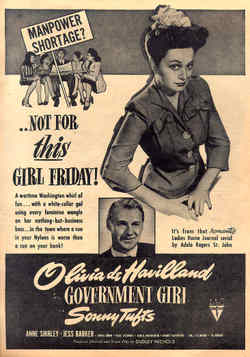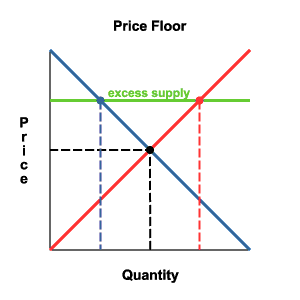For fans of propaganda, the World War II film Government Girl is a minor classic. It tells the story of an auto executive who volunteers to become a bureaucrat, a "$1 a year man," during WWII.
The idea of a heroic volunteer bureaucrat fighting special pleaders on behalf of "the cause" seems quaint today, but we’ll need that ethic badly to win The War Against Oil.
Because the special pleaders are out in force. Basically they’re all claiming the war can be won with whatever is abundant where they are, and that the best answer is for the government to give them subsidies:
- Steve Beshear, a Democrat, has an ad out touting "clean coal and corn" in Kentucky. He’s running for Governor, but that doesn’t stop him from seeking federal hand-outs.
- John Thune, a Republican, is pushing for wind subsidies, knowing the South Dakota prairie is full of wind.
- Bill Richardson, a Democrat running for President, was in New Hampshire touting wood energy. Guess what New Hampshire has lots of?
- Iowa Gov. Chet Culver is seeking subsidies for ethanol. Guess what they make in Iowa?
The subsidy train is already leaving the station. A House Energy subcommittee is pushing President Bush to increase loan subsidies for nuclear plants, as an answer to global warming.
I have a better idea.
Let’s start by eliminating the current subsidies
we have for fossil fuels, everything from tax credits to giveaway
leases on coal lands. Rather than a "carbon tax," which sounds nasty
(despite the good it might do), why not a "price floor" for energy, one
we can manipulate over time in favor of renewables but which we’ll
sell, for now, as a level playing field?
More important, let’s immediately set up a Congressional panel on
waste, fraud and abuse in the subsidies we give all energy suppliers,
not just so we can establish the ground rules for debate but so we’ll
have someone looking out against war profiteers as we get this struggle
moving forward.
Finally I think it’s absolutely vital for us to keep an open mind. The
solutions in The War Against Oil are unlikely to follow the same
pattern as our current energy system.
We can’t afford to lock-in
advantages for any special pleaders, or any players, right now. If we
give the money to the electric companies, as Colorado did,
we lock-in what might be a very inefficient distribution system. If we
place big government bets on any current technology, we may lock-out
new ideas, like the quantum dots I discussed the other day.
That gas pump in front of you should be the Pearl Harbor of The War
Against Oil we need to conduct. But unlike any other war we’ve fought,
this war is a struggle for efficiency, not mere production. It is the
economy which can produce the most renewable energy with the greatest
efficiency that will win the markets of tomorrow.
Subsidies aren’t the answer.












